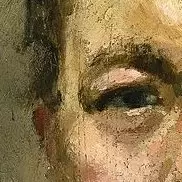

Alright. Given that you’re interested in psychology, feel free to check these resources out: https://dnav.international/video-audio-resources/ https://dnav.international/wp-content/uploads/DNA-V-workbook-april-15-2020.pdf
These are introductions to Acceptance and Commitment Therapy.
You can also check out the Healthy Minds Program https://hminnovations.org/meditation-app


















Sorry if you know this game, but I’ve met plenty of people who haven’t and I’ve never seen it mentioned online until I searched for it today: Contact!